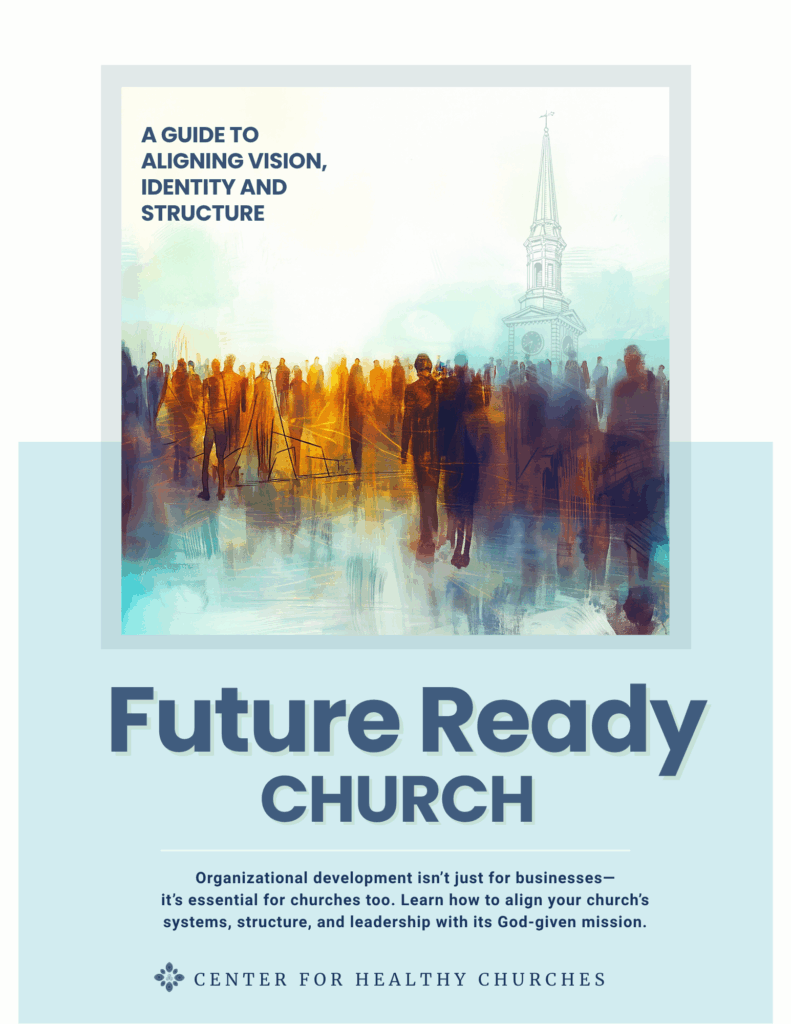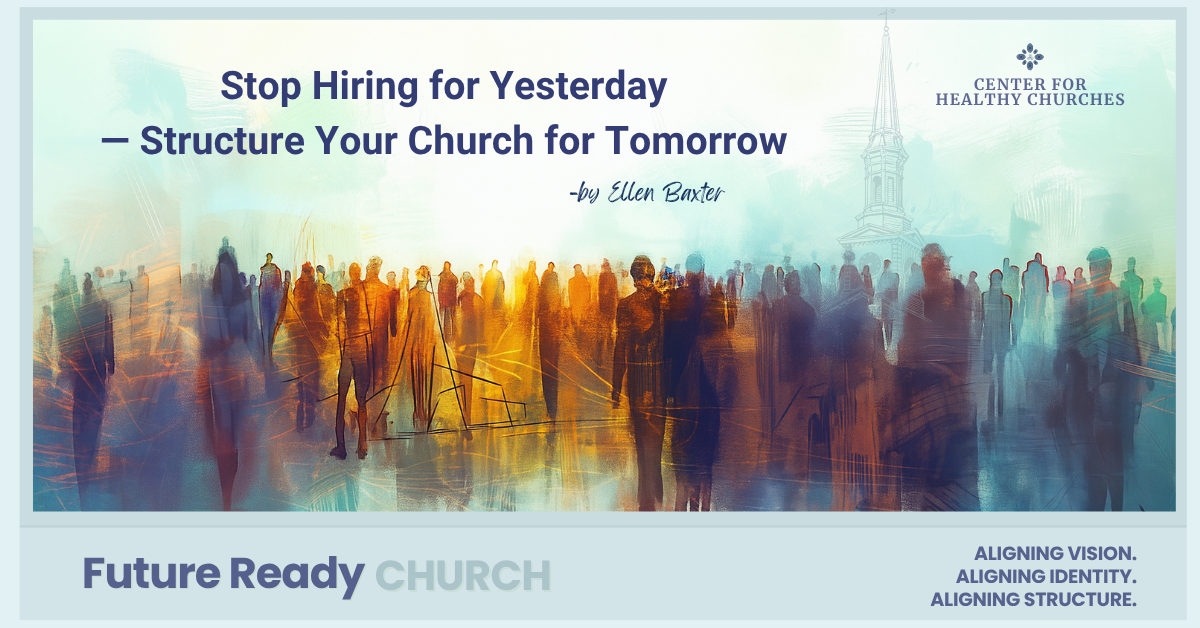The pastor who built your last decade of ministry success is probably the wrong hire for your next decade.
This isn’t a criticism of faithful servants who’ve shepherded congregations through seasons of growth. It’s recognition that the ministry landscape rewarding certain skills is rapidly giving way to one demanding entirely different capabilities.
The Perfect Storm
We’re facing a convergence of challenges: declining church attendance, shrinking congregations, aging membership, and eroding trust in religious institutions. Digital connectivity has replaced physical proximity as the primary way people form communities. Meanwhile, younger generations approach faith with different expectations about authenticity and engagement—yet they’re often absent from our pews entirely.
This creates a perfect storm: churches need leaders who can connect with younger demographics and navigate digital ministry, but they often lack the financial resources to hire specialists. Their existing membership—while faithful—may not fully understand the changes necessary to reach new populations.
What Yesterday’s Success Looked Like
Traditional church ministry rewarded specific competencies: platform mastery through polished pulpit delivery, institutional authority through hierarchical leadership, program excellence measured by attendance numbers, specialized expertise with clear role boundaries, and stability management that prioritized tradition over adaptation.
These approaches worked when church attendance was cultural expectation, denominational loyalty was strong, and community life revolved around weekly gathering patterns.
Why Yesterday’s Playbook Is Failing
In today’s landscape, traditional ministry strengths can become liabilities:
One-way communication feels disconnected in an interactive digital culture. Hierarchical authority rings hollow when transparency and collaboration are cultural expectations. Program-centric thinking misses the mark when people want personalized, flexible spiritual experiences. Narrow specialization becomes a constraint when ministry roles require versatility and rapid adaptation.
The pastor who mastered filling sanctuary seats may struggle to build authentic online communities. The administrator who efficiently managed traditional programs might falter creating responsive ministry experiences.
Tomorrow’s Ministry Requirements
The church that thrives needs leaders with fundamentally different capabilities:
Digital fluency as ministry skill—comfort with technology as a core ministry tool for building community, creating content, and facilitating discipleship through screens.
Collaborative leadership over positional authority—leading through influence, transparency, and shared decision-making rather than hierarchy.
Community responsiveness over program preservation—reading communities carefully and adapting accordingly, asking “How do we serve actual spiritual needs?” rather than “How do we fill our programs?”
Multi-platform communication skills—connecting meaningfully across in-person gatherings, live streaming, social media, and small groups.
Cultural bridge-building—navigating between established church culture and emerging spiritual hunger while honoring tradition and embracing innovation.
Restructuring for Reality
The downsizing reality means most churches can no longer afford specialists for every ministry need. This constraint can force healthier hiring decisions. Instead of asking “What position do we need to fill?” ask “What kind of leader can maximize our impact with current resources?”
Prioritize hybrid skill sets: The era of large staff teams with narrow specializations is ending. Seek candidates who demonstrate competency across multiple areas. Your next children’s pastor might also create digital content, facilitate small groups, and handle community outreach. This isn’t settling for less—it’s intentionally seeking versatile, innovative leaders.
Value learning agility over experience: Prioritize candidates who demonstrate rapid learning, adaptability, and comfort with uncertainty over those with extensive traditional experience.
Test collaborative capacity: Ministry increasingly requires entrepreneurial thinking and team-based problem-solving rather than individual expertise.
Look for bridge-builders: The most valuable hires can navigate both yesterday’s and tomorrow’s church cultures while working within resource constraints. They respect aging membership wisdom while creating pathways for younger engagement.
The Legacy Opportunity
Aging congregations often have deep wisdom, strong stewardship, and genuine desire to see their church thrive beyond their lifetimes. When they understand how strategic hiring ensures long-term sustainability and growth, they become champions of innovative approaches.
Bridge-building leaders help established members see their legacy potential—how their faithful stewardship can be leveraged to build ministry that outlasts their participation rather than focusing on decline.
The Stakes
The church you’re building today will either serve the spiritual needs of the next generation or become increasingly irrelevant. Your hiring decisions now determine which direction you’re heading.
This isn’t about chasing trends or abandoning theological foundations. Effective ministry has always required cultural relevance and relational authenticity. The methods change, but the mission remains: connecting people with God and each other in transformative ways.
The pastor who built your last decade of success deserves honor. But the leader who will build your next decade of impact needs entirely different gifts. The question isn’t whether change is coming—it’s whether you’ll hire and structure your church to thrive in tomorrow’s ministry landscape or struggle to maintain yesterday’s successes.
Your community’s spiritual future may depend on getting this hire right.
📌 Related Future Ready Church Blogs:
- Facing Reality: The First Step in Visioning for Your Church’s Future (Bill Wilson)
- 5 Organizational Pitfalls That Keep Churches Stuck (Barry Howard)
- Before You Make a Plan, Name the Pain (David Brubaker)
- Discernment Is Not a Task—It’s a Spiritual Muscle (Jayne Davis)
At the Center for Healthy Churches, we understand how hard it can be to invite outside help. Our Organizational Development team walks alongside churches to align vision, mission, identity, and strategy – not with canned solutions, but with listening, wisdom, and practical next steps that fit who you are and where God is leading you. Contact Us for questions or to discuss your needs.
Future Ready Church Resources
The Future Ready resources equips church leaders with practical tools and frameworks to align their congregation’s vision, identity, and structure for effective, Spirit-led ministry in today’s changing world.


Leave a Reply